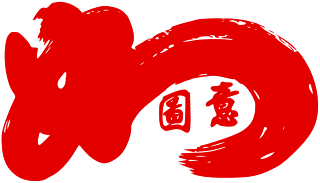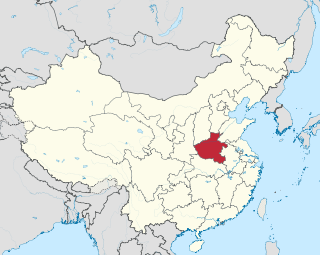
The government of the People's Republic of China officially espouses state atheism, though Chinese civilization has historically long been a cradle and host to a variety of the most enduring religio-philosophical traditions of the world. Confucianism and Taoism, later joined by Buddhism, constitute the "three teachings" that have shaped Chinese culture. There are no clear boundaries between these intertwined religious systems, which do not claim to be exclusive, and elements of each enrich popular or folk religion. The emperors of China claimed the Mandate of Heaven and participated in Chinese religious practices. In the early 20th century, reform-minded officials and intellectuals attacked all religions as "superstitious", and since 1949, China has been governed by the Communist Party of China, an atheist institution that prohibits party members from practicing religion while in office. In the culmination of a series of atheistic and anti-religious campaigns already underway since the late 19th century, the Cultural Revolution against old habits, ideas, customs and culture, lasting from 1966 to 1967, destroyed or forced them underground. Under following leaders, religious organisations were given more autonomy. The government formally recognizes five religions: Buddhism, Taoism, Catholicism, Protestantism and Islam. In the early twenty-first century there has been increasing official recognition of Confucianism and Chinese folk religion as part of China's cultural inheritance.

Yiguandao, meaning the Consistent Way or Persistent Way, is a Chinese folk religious sect that emerged from the Xiantiandao tradition in the late 19th century, in Shandong, to become China's most important redemptive society in the 1930s and 1940s, especially during the Japanese invasion. In the 1930s Yiguandao spread rapidly throughout China led by Zhang Tianran, who is the eighteenth patriarch of the Xiantiandao lineage, among thousands of other movements that thrived since the collapse of the Qing dynasty in 1911.

Shengdao, best known by its corporate name Tongshanshe is a Confucian salvation sect part of the Xiantiandao lineage.

Guiyidao, better known as Precosmic Salvationism in contemporary Taiwan, and historically also known by the name of its institutions as Daodeshe (道德社), Guiyi Daoyuan (皈依道院) or later Daoyuan (道院) — respectively "Community of the Way and its Virtue", "School of the Way of the Return to the One" or simply "School of the Way" — is a Chinese folk religious movement of salvation belonging to the Xiantiandao tradition.
Yihewani, or Ikhwan, is an Islamic sect in China. Its adherents are called Sunnaiti. It is of the Hanafi school, one of the six major schools of Islam. It is also referred to as "new sect" " or "Latest sect". Ikhwan (Yihewani), together with Qadim (Gedimu) and Xidaotang, are the three major sects of Islam in China. The Yihewani sect was labeled as the new teaching (xinjiao). In 1937 it divided into two groups.
The Shouters, or more properly the Shouters sect (呼喊派), is a label attached by the People's Republic of China (PRC) to an amorphous group within China that was targeted by the government first as counterrevolutionaries and subsequently as a criminal cult after incidents in Dongyang and Yiwu counties in Zhejiang province in February 1982. "The Shouters sect" became the object of waves of arrests in 1983 and again in 1995. Several 1983 publications with ties to the Three-Self Patriotic Movement (TSPM) accused the late expatriate Chinese Christian teacher Witness Lee of being the leader of "the Shouters sect" and of instigating the disorders. In practice, however, the appellation "the Shouters sect" has been applied far more broadly to many groups that pray openly and audibly and/or do not register or otherwise cooperate with the TSPM. There is considerable reason to doubt the veracity of the reports which led to the condemnation of "the Shouters sect" and the association of them with Witness Lee or the local churches, and the local churches distance themselves from the Shouters.
Yaochidao, also known by the name of its corporate form the Holy Church of the Mother-of-Pearl Lake, or by the older name of Cihuitang, is a Chinese folk religious sect related to the Xiantiandao lineage, with a strong following in Taiwan and active as an underground church in the People's Republic of China, where it is theoretically a proscribed sect.
Yang Xizong was a politician of the People's Republic of China. He served as Communist Party Chief of Henan province and Governor of Sichuan province.
Chinese salvationist religions or Chinese folk religious sects are a Chinese religious tradition characterised by a concern for salvation of the person and the society. They are distinguished by egalitarianism, a founding charismatic person often informed by a divine revelation, a specific theology written in holy texts, a millenarian eschatology and a voluntary path of salvation, an embodied experience of the numinous through healing and self-cultivation, and an expansive orientation through evangelism and philanthropy.
Sanban puren pai is a Christian doomsday sect in China. The group was founded in Henan by Xu Wenku who claimed to be the "Great Servant" 大仆人 in the 1990s.

Yang Yong was a general in the People's Liberation Army of China. He served as the secretary of the Secretariat of the Communist Party of China Central Committee between September 1982 and January 1983, and governor of Guizhou, from January 1950 to April 1951.

Pan Fusheng was a Chinese Communist revolutionary and politician. He was the first party secretary of the short-lived Pingyuan Province of the People's Republic of China, and also served as the First Secretary of Henan and Heilongjiang provinces.
Yang Jinshan is a disgraced general in the People's Liberation Army of China. He served as the Deputy Commander of Chengdu Military Region between July 2013 to October 2014, and Commander of Tibet Military District from December 2009 to July 2013. Yang is a former member of 18th Central Committee of the Communist Party of China, but was expelled from the body in 2014.
Mao Wanchun is a Chinese politician who has served as Chairman of the Hainan Provincial CPPCC since January 2018. He was formerly Deputy Party Secretary of Shaanxi province. Mao spent much of his early career in his native Henan province, where he served as Party Chief of Luoyang.
Baguadao or Eight Trigram Teaching (八卦教) is a network of Chinese folk religious sects, one of the most extended in northern China. The tradition dates back to the late 17th century Ming dynasty, and was heavily persecuted during the following Qing dynasty when affiliated sects organised an uprising in 1813, led by Lin Qing. Affiliated sects appeared under various names, but during the latter half of the 18th century they adopted Bagua Jiao as their common designation.
Tianguangdao is a Chinese folk religious sect that as of the 1980s was a proscribed religion in China. Particularly active in Heilongjiang and Anhui, there are records of detentions of leaders and members easpecially from the former province.
Huangjidao or Huangjiism is a Chinese folk religious sect that as of the 1980s was a proscribed religion in China as testified by the arrest of various leaders and members in those years.
Zhongyongdao is a Chinese folk religious sect that as of the 1980s was a proscribed religion in China as testified by the arrest of one of its leaders, Tang Tianxu, in Sichuan in 1981.
Yang Gui was a Chinese politician who served as Party Committee Secretary of Lin County in Henan Province. During his tenure he designed and oversaw the construction of the Red Flag Canal from 1960 to 1969, a major irrigation project considered by Premier Zhou Enlai as one of the two "miracles" of the People's Republic of China. He is called one of the three most beloved county secretaries in Henan, together with Jiao Yulu of Lankao and Zheng Yonghe of Huixian.

The Yellow Sand Society, also known as Yellow Way Society, and Yellow Gate Society, was a rural secret society and folk religious sect in northern China during the 19th and 20th century. Inspired by millenarian ideas, the movement launched several uprisings against the late Qing Empire, the Republic of China, and the Chinese puppet states of Japan. The Yellow Sands were eventually suppressed by the Communist Party of China (CPC) in the second half of the 20th century.














